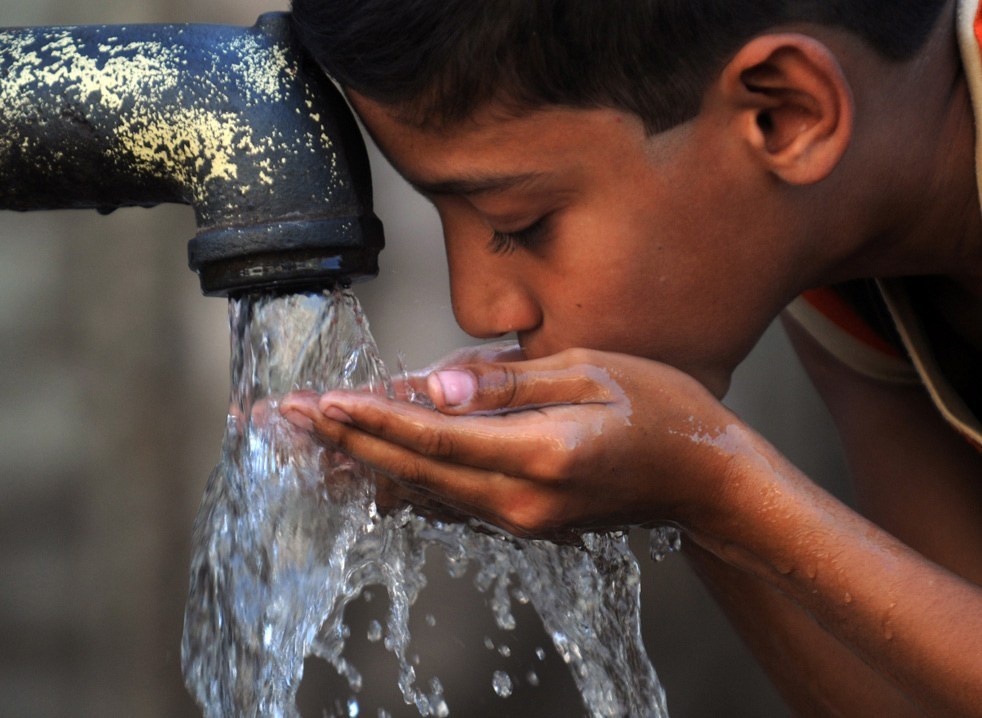Water contamination a rising threat to healthcare
While the news of water scarcity in the Indian states has been a major reason of concern, another grave issue to be paid attention to is the increasing contamination of groundwater which in turn has serious health impacts.
In addition to the scarcity of water, another alarming issue that has risen is 70 pc of the water being used is contaminated. According to a report revealed by the ministry of Drinking Water and Sanitation, 14.7 million people in India face serious health hazards due to arsenic and lead contamination in groundwater. Around 40 million people in India live in areas affected most by arsenic contamination in the states like West Bengal, Assam, Bihar, Uttar Pradesh and Jharkhand, the report said.
India is placed at 120th in a list of 122 countries on basis of quality of water. The Niti Aayog report titled A Composite Water Management Index from June 2018 claimed that a majority of the country, almost three-fourth of households, do not have drinking water access in their homes. And according to a Lancet study of 2017, annually 640,000 deaths in India are caused by water pollution. The most common water-borne diseases- cholera, typhoid, acute diarrhoeal diseases (ADD) and viral hepatitis have caused more deaths in the last five years with diarrhea among the top reasons for under-five mortality.
According to scientists, there are two kinds of pollution- geogenic (caused by nature) and anthropogenic (man-made). Chemicals like arsenic and fluoride are mostly geogenic in nature but industries also contribute to this pollution along with lead into contaminating the water.
Long-term consumption of groundwater arsenic can lead to chronic poisoning, causing diseases like cancer, bronchitis, diabetes, bone marrow depression and cardiovascular diseases.
“The quality of life is co-related to the quality of water consumed. The increased contamination of water has lead to the rise in not only infectious diseases but also skin cancers and heavy metal poisonings. There is an immediate need of ‘water literacy’ among the people to make them aware of the issue and also how they can help in preventing the groundwater pollution which in turn will help in reducing the health problems caused by contaminated water,” says Dr Himadri Das, MD,consultant physician to Media India Group.
Initiatives undertaken
At the recent Union Budget, finance minister Nirmala Sitharaman said that providing safe drinking water to all parts of the country is a priority and announced the Jal Jeevan Mission to provide potable water to every rural household by 2024. She also spoke about the government’s newly formed ministry to address water issues- Jal Shakti, which will look into the management of water resources and drinking water supply in a holistic manner.
“Jal Shakti Ministry will work with state governments to ensure sustainable water management, including creation of local groundwater storage and recharge and use of waste treated water in agricultural activities in all these blocks,” said Sitharaman in context of the water conservation scheme.
Robin Dutta, professor of chemical science at Tezpur University, has made a low-cost filter technology called Arsiron Nilogen to remove arsenic and fluoride from groundwater. In Assam, arsenic has been detected in 4,416 areas in the groundwater which is harmful for long-term consumption and risks the lives of about two million people. “I am from a village which has seen 29 cancer deaths since 1975, the first being my elder brother. I also lost my father, uncle, next-door neighbour and my closest childhood friend to cancer. Till 2006, we did not know that all of us were consuming arsenic-contaminated water in the village,” said Dutta.
Dutta along with his team developed an affordable water treatment filter suitable for rural application which is now being implemented even in Assam schools as science project. The filter treats contaminated water with small quantities of cooking soda, potassium permanganate and ferric chloride.
The government should also take initiatives to literate people about water pollution and contamination and work on groundwater resource management to improve the quality as well as quantity of clean water.













